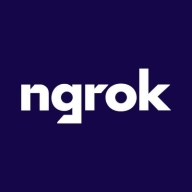

SUSE Linux Enterprise and ngrok operate in distinct areas of technology, with the former offering robust enterprise solutions and the latter providing secure tunnels for local servers. SUSE holds an advantage in enterprise-grade security and system management, while ngrok benefits from its specialized functionality for developers.
Features: SUSE Linux Enterprise offers enterprise-grade security, scalability, and advanced system management tools, ideal for managing large-scale deployments. It supports robust enterprise environments with comprehensive management features tailored for demanding IT infrastructures. ngrok offers quick and seamless setup of secure tunnels, highly beneficial for developers needing instant access to public URLs for testing purposes. Its integration capabilities and user-friendly features make it a preferred choice for local testing.
Ease of Deployment and Customer Service: SUSE Linux Enterprise provides extensive documentation and support services that facilitate deployment in complex environments, though the setup might require greater complexity. ngrok offers straightforward deployment with minimal need for external support, appealing to users seeking quick and simple access, emphasizing its ease of installation compared to complex IT systems.
Pricing and ROI: SUSE Linux Enterprise demands a significant initial investment aligning with its enterprise-focused features, designed to deliver long-term value through robust management capabilities. Alternatively, ngrok provides a cost-efficient solution, notably at entry-level prices, delivering strong short-term ROI for developers and less intensive use cases, making it attractive for smaller scale requirements.

All-in-one API gateway, Kubernetes Ingress, DDoS protection, firewall, and global load balancing as a service.
SUSE Linux Enterprise offers features like YaST for server management, seamless integration with Oracle and SAP, and a robust security setup. Renowned for stability, it efficiently supports workstations, SAP workloads, and cloud migrations across diverse industries.
SUSE Linux Enterprise is known for its lightweight design, high performance, and ease of installation. Its flexible architecture supports extensive documentation and efficient patching. The system uses the BTRFS file system for effective virtualization, and community support is significant. However, challenges include package updates causing conflicts, difficult initial setup and software management, high pricing, and support response times. Improvements in security compliance, cloud integration, hardware compatibility, and documentation are also needed.
What are SUSE Linux Enterprise's important features?Industries like healthcare and banking use SUSE Linux Enterprise for secure transactions and structured application deployment. It is also a choice for organizations involved in testing, automation, and web development, offering support for SAP HANA integration and facilitating cloud migrations.
We monitor all AWS Marketplace reviews to prevent fraudulent reviews and keep review quality high. We do not post reviews by company employees or direct competitors. We validate each review for authenticity via cross-reference with LinkedIn, and personal follow-up with the reviewer when necessary.